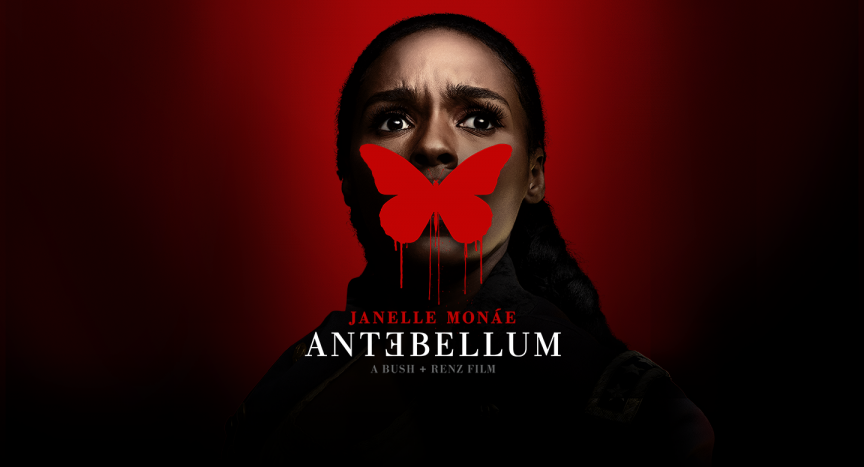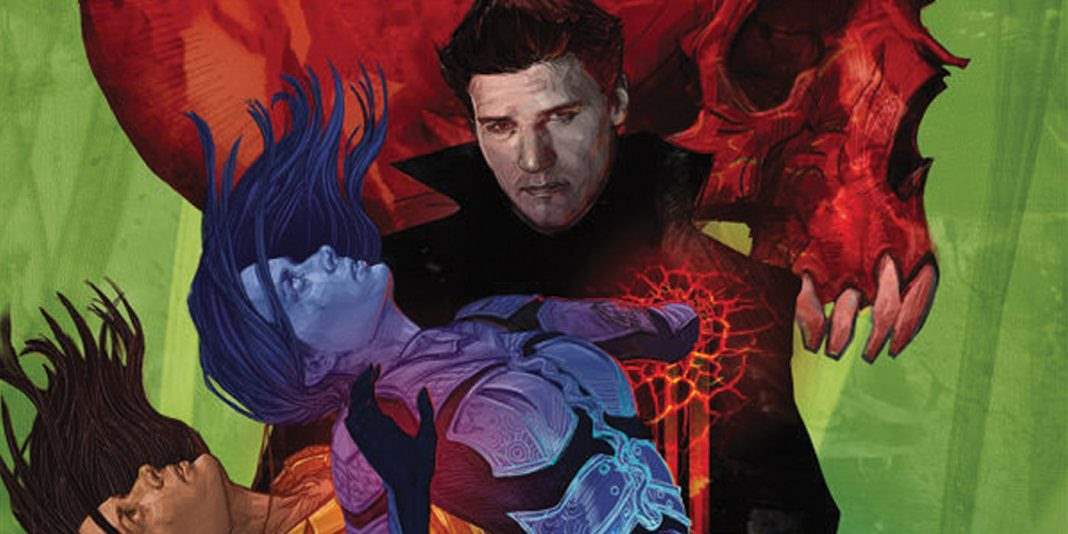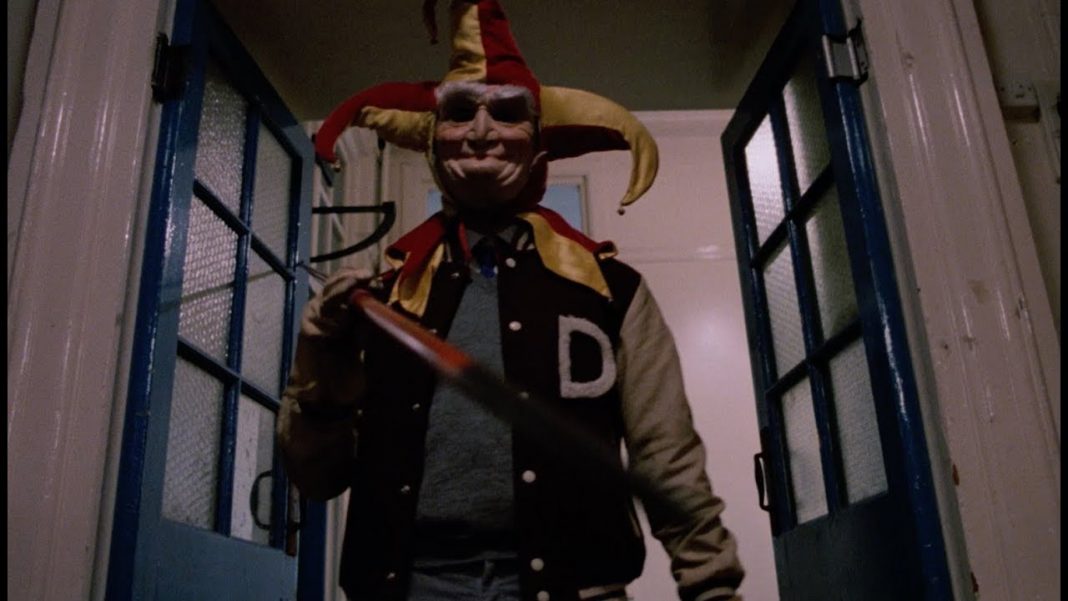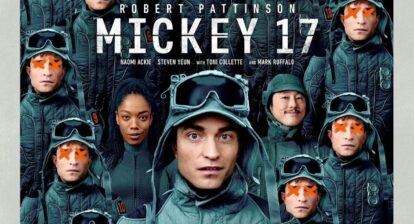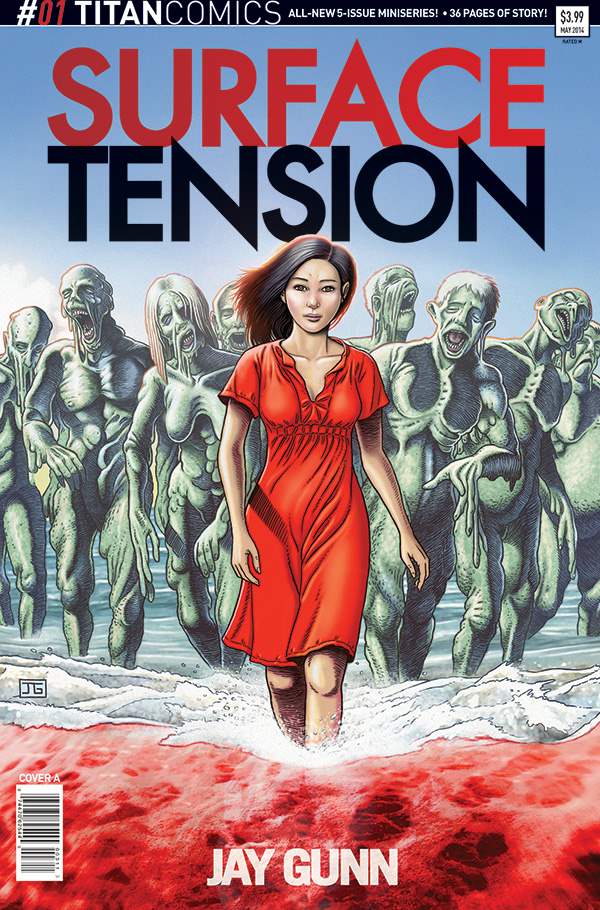Sometimes ineptitude can be endearing. On the other hand, in most instances one will find themselves infuriated by witnessing an impotence of expression – incapacity that ensures a thing unashamedly self-satisfied comes across as insufferable, offensively naïve, and unjustifiably boastful. The staggering ineptitude of Antebellum is best illustrated through the fact that it is almost entirely ineffective.
The film’s political consciousness – or lack thereof – can only ultimately manifest as a feature that operates like an aggravating gnat in the ear of an audience who might have otherwise been wholly attentive. The way it seeks to explore topics of race and history prove in the fullness of time to be counter-intuitive. From the film’s obnoxiously over-choreographed opening long-take to its predictable third-act ‘twist’, it is a film that cannot help but cloak its tenuous theses in hairbrained mischief, clumsy sleight-of hand, and cheap caricatures of heroes and villains alike. All the while, it is so proud of its worldview, so impressed and enamored by its own concoction, that one can only feel a sickening mixture of aggravation and second-hand embarrassment watching it careen over a cliff of preposterousness. From a road perhaps paved with good intentions, it morphs an attempt at sharp and spiky genre fiction into something mundane and laughable, dull-edged, smug and boring.
Also See: Seven Jump Scares That Have Never Lost Their Impact
The film pits Janelle Monáe’s protagonist – a blandly flattened portrait of a TED Talk-posturing public academic and pundit – against vile embodiments of tiki torch supremacism. These are overseers and confederates engaged in a frivolous exploitation-film facade, a feverish imagining of a liberal nightmare that is so needlessly exaggerated so as to nullify itself. The preposterousness has nothing to do with overestimating the bounds of bigotry. Rather Antebellum becomes an inadvertent farce because it depicts the racism of our contemporary landscape through such highly literal, obvious, one-dimensional iterations, all of them of familiar iconography, and all entirely bereft of either commentary or fresh illumination.
A scheme involving a massive cover-up made to cloak a secret operation of exploitation could have been depicted instead as an operation endorsed by the United States government. Slavery, a backbone of America’s economy and beginnings, and a blood-drenched and unforgivable system of greed and inhumanity, was not done in secret. The film’s toothless naivety, to assume white supremacy is most frightening and shocking when it is concealed by isolation, whispers, trapping innocents in an undercover world of cruel fantasy, comes across as bitterly tone-deaf and out-of-date within the context of contemporary discourse.
Racism, neither a specter nor a fixture of a bygone world, is present and palpable. Moments of the film acknowledge this, but taken conceptually the central conceit of Antebellum’s narrative fails to indulge or explore such ideas. As such, every reveal presented in the film is underwhelming. This is not even to mention that every act of violence depicted is made toothless through its clumsiness in film language, and bluntness of artistic intention. In so many scenes of the film, one could not hit the head of a nail harder without shattering the hammer. And yet all is done to no effect.
See Also: Five Movies You Might be Surprised Tim Burton Didn’t Direct
Watching Antebellum is a numbing experience, because the entire be-all and end-all of its narrative technique is to dupe its audience. The opening act of the film is a ruse, and one that condescends to the audience – insisting they will be utterly unable to see through the dubious verisimilitude of this plantation scenario. So many lines of dialogue and character interactions are designed to be as vague and shallow as possible, so as to not provide a ‘tell’ to the deception underway. When the twist eventually surfaces, that deception is cleanly over, and those dialogues and character interactions are immediately presented with an entirely different lexicon, manner, and purpose – replaced with vernaculars and postures prior invisible – despite the fact that nothing has changed for the characters. It is the act of watching an unconvincing poker face finally giving way to a completely empty hand.
The flimsiness and folly of this sort of structural framework being the backbone for a film lies in just how frustrating it is for a perceptive audience – as well as for one that does not appreciate being blatantly talked-down to. It illustrates the filmmaker’s lack of faith in the core of their material. And in addition, Antebellum could be easily pilloried as yet another film that cannot conceive of black individuals existing outside of their entrapment within devices and visions of bodily suffering, enslavement, and brutal dehumanization. Even in its conceptualization of everyday contemporary life, Antebellum’s choice to illustrate a successful black woman as a stale public figure – as well as one whose opportunities to present her writing and research comes across most like something scripted by a right-wing buffoon limply attempting a satirization of intersectionality and social justice – demonstrates how the filmmakers lack the imagination or chops required to conceive of a genre piece that does not simply boil down character to cliché; politics to evocations of talking points.
That these filmmakers have taken territory that can so easily evoke horror and instead used it for generic, grown-worthy and crass winks and self-righteous smirks is something of a grave offense. That Antebellum does not at all command a realistic portrait of slavery in America, and that this fact is obnoxiously explained away by the smug theatrics of this laughable script, is equally insulting. It is a mind-numbing bit of would-be bravado that misses its intended mark entirely, instead coming across as incredibly embarrassing. One watches scenes of implausible and comically cardboard impressions, meant to depict something like what is a true history of human exploitation and suffering, but made in a way that visually resembles something more like what a marketing executive or commercial photographer might be able to conjure on the cheap.
Also See: Five Bigfoot Films that Leave a Deep Impression (and Four That Missed the Mark)
Antebellum is a film entirely lacking in grit or texture – both visually and intellectually. Boasting of its connections to Jordan Peele’s recent directorial work in its marketing campaign only more awkwardly highlights how it flounders in attempt to capture any of Us or Get Out’s technical prowess or genuinely intriguing premises or narrative content.
In a time when more and more audiences are seeming to demand storytelling depict history and sociology with greater nuance, Antebellum is not only entirely uncalled for, but regressively simple in its techniques. It is undeniably ineffective in its attempts at being a piece of engaging genre fiction. That a film of and in the world of American slavery cannot in any way shock or disgust or rile or shake is not only a potent argument for its ineptitude, but a condemnation of its entire modus operandi.
We are engaged with these issues, and there is by no means a dearth of films that explore them with power and precision. Antebellum underestimates the intelligence of its audience.
Antebellum is now available on 4K Ultra HD™ Combo Pack (plus Blu-ray and Digital), Blu-ray Combo Pack (plus DVD and Digital), DVD, Digital, and On Demand from Lionsgate.
Wicked Rating: 3/10
Follow us on social media! Twitter, Facebook, and Instagram.
